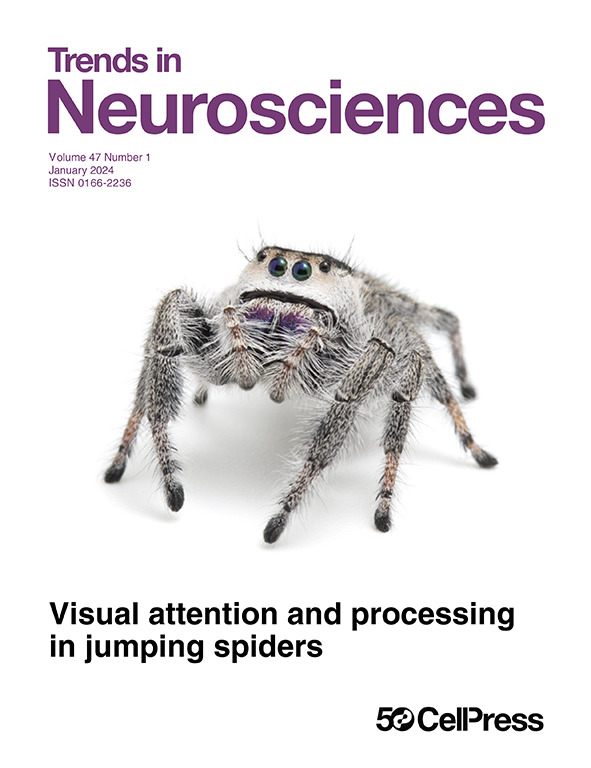The ABCs of lipid exposure in maintaining neural health.
IF 15.1
1区 医学
Q1 NEUROSCIENCES
引用次数: 0
Abstract
ABC transporters modulate lipid homeostasis and are implicated in neurodegenerative diseases. In a recent study, Chen et al. uncovered unexpected dual roles for the Drosophila ABCA protein eater of debris (Eato), which suppresses phospholipid exposure in both neurons and phagocytes, conferring opposite functional outcomes in each cell type. This challenges classical models of ATP-binding cassette (ABC) transporter function and reveals new mechanisms by which lipid signaling regulates neuron-glia interactions in neurodegenerative contexts.
脂质暴露在维持神经健康中的基础。
ABC转运蛋白调节脂质稳态并与神经退行性疾病有关。在最近的一项研究中,Chen等人发现了果蝇ABCA蛋白吞噬碎片(Eato)意想不到的双重作用,它抑制神经元和吞噬细胞中的磷脂暴露,在每种细胞类型中赋予相反的功能结果。这挑战了atp结合盒(ABC)转运体功能的经典模型,并揭示了在神经退行性背景下脂质信号调节神经元-胶质细胞相互作用的新机制。
本文章由计算机程序翻译,如有差异,请以英文原文为准。
求助全文
约1分钟内获得全文
求助全文
来源期刊

Trends in Neurosciences
医学-神经科学
CiteScore
26.50
自引率
1.30%
发文量
123
审稿时长
6-12 weeks
期刊介绍:
For over four decades, Trends in Neurosciences (TINS) has been a prominent source of inspiring reviews and commentaries across all disciplines of neuroscience. TINS is a monthly, peer-reviewed journal, and its articles are curated by the Editor and authored by leading researchers in their respective fields. The journal communicates exciting advances in brain research, serves as a voice for the global neuroscience community, and highlights the contribution of neuroscientific research to medicine and society.
 求助内容:
求助内容: 应助结果提醒方式:
应助结果提醒方式:


